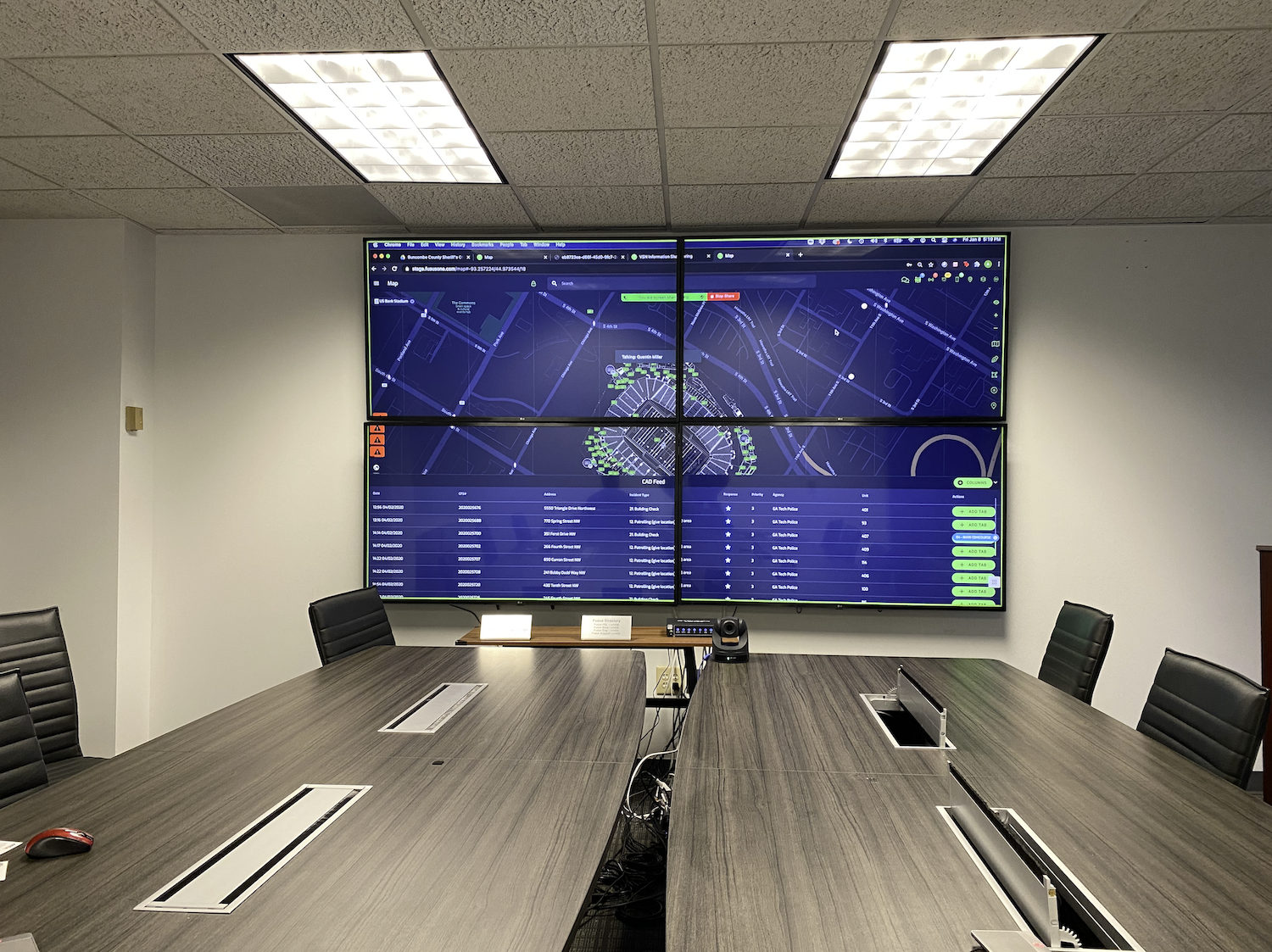- cross-posted to:
- privacy@lemmy.ml
- cross-posted to:
- privacy@lemmy.ml
Spread across four computer monitors arranged in a grid, a blue and green interface shows the location of more than 50 different surveillance cameras. Ordinarily, these cameras and others like them might be disparate, their feeds only available to their respective owners: a business, a government building, a resident and their doorbell camera. But the screens, overlooking a pair of long conference tables, bring them all together at once, allowing law enforcement to tap into cameras owned by different entities around the entire town all at once.
This is a demonstration of Fusus, an AI-powered system that is rapidly springing up across small town America and major cities alike. Fusus’ product not only funnels live feeds from usually siloed cameras into one central location, but also adds the ability to scan for people wearing certain clothes, carrying a particular bag, or look for a certain vehicle.
404 Media has obtained a cache of internal emails, presentations, memos, photos, and more which provide insight into how Fusus teams up with police departments to sell its surveillance technology. All around the country, city councils are debating whether they want to have a system that qualitatively changes what surveillance cameras mean for a town’s residents and public agencies. While many have adopted Fusus, others have pushed back, and refused to have the hardware and software installed in their neighborhoods.
In some ways, Fusus is deploying smart camera technology that historically has been used in places like South Africa, where experts warned about it creating an ever present blanket of surveillance. Now, tech with some of the same capabilities is being used across small town America.
Rather than selling cameras themselves, Fusus’ hardware and software latches onto existing installations, which can include government-owned surveillance cameras as well as privately owned cameras at businesses and homes. It turns dumb cameras into smart ones. “In essence, the Fusus solution puts a brain into every camera connected with the system,” one memorandum obtained by 404 Media reads.
He gazed up at the enormous face. Forty years it had taken him to learn what kind of smile was hidden beneath the dark moustache. O cruel, needless misunderstanding! O stubborn, self-willed exile from the loving breast! Two gin-scented tears trickled down the sides of his nose. But it was all right, everything was all right, the struggle was finished. He had won the victory over himself. He loved Big Brother.
George Orwell, 1984
deleted by creator
Ai Camera’s took over a small town
What the hell? Why capitalize Camera, why apostrophe-s after Camera?
Especially since the article spelled cameras right.
Although maybe it was wrong originally and that’s why OP’s pltitoe is broken
I don’t like this ride anymore.
I want to get off Mr. Bones’ Wild Ride
Watchdogs from Ubisoft was right.
deleted by creator
“Suspect is wearing all black, or very dark colors, including their car, bags, and everything else on them”
This reminded me of people who get their license plate to be “1i1li1l” so that they are harder to ID, when in reality they’d just do a query for 1 l and i
software latches onto existing installations, which can include government-owned surveillance cameras as well as privately owned cameras at businesses and homes.
How can that be legal, or even possible? If you and your partner film yourself in the bedroom, I guess they’re gonna tap into that too?
I’d imagine you need to point the software to a camera you own. In this case, cities would add list of the networked cameras they use to the software suite and let it do its thing.
I doubt this program is just scouring the net for unsecured cameras, but who really knows. IP geolocation is getting worse and worse by the year, so that’s an unreliable feature.
CTOS Watch Dogs anyone?
What a horrible design choice for a site. The first few times I went to that site I thought I was getting a 404 page…







